We're hiring postdocs and senior researchers in AI/ML broadly, and in specific areas like test-time scaling and science of DL. Postdoc applications due Oct 22, 2025. Senior researcher applications considered on a rolling basis.
Links to apply: aka.ms/msrnyc-jobs

We're hiring postdocs and senior researchers in AI/ML broadly, and in specific areas like test-time scaling and science of DL. Postdoc applications due Oct 22, 2025. Senior researcher applications considered on a rolling basis.
Links to apply: aka.ms/msrnyc-jobs
False! Scaling language models by adding more pre-training data can decrease your performance after post-training!
Introducing "catastrophic overtraining." 🥁🧵👇
arxiv.org/abs/2503.19206
1/10
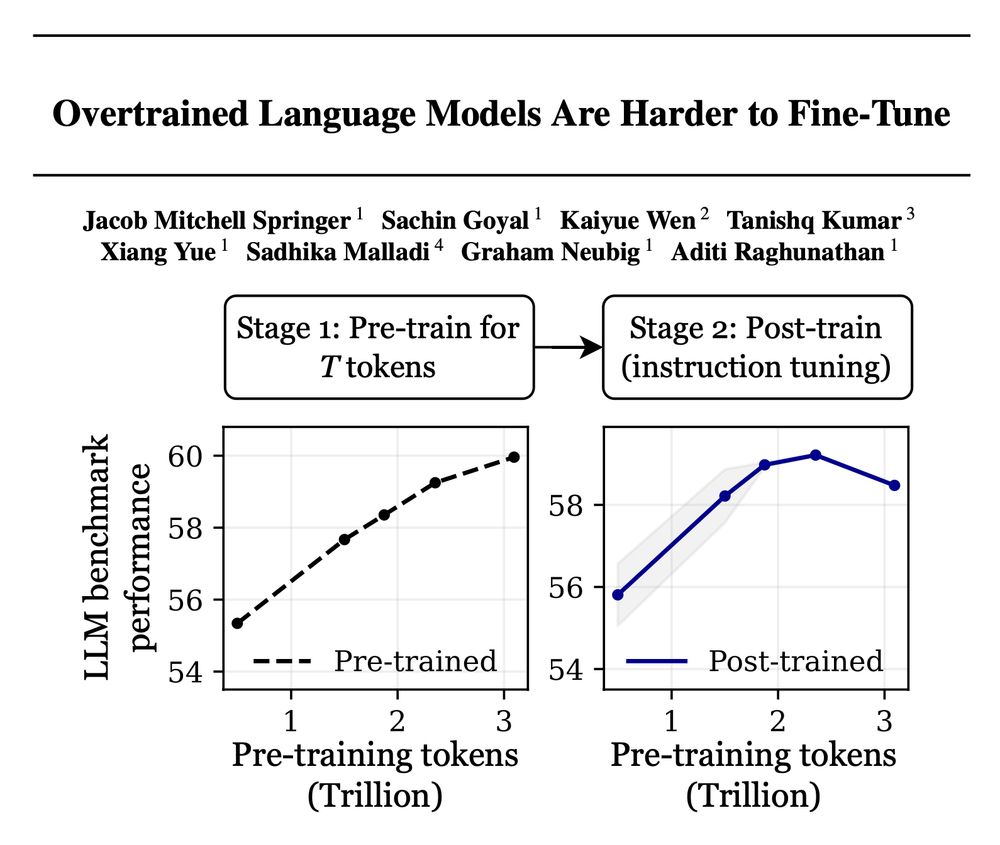
False! Scaling language models by adding more pre-training data can decrease your performance after post-training!
Introducing "catastrophic overtraining." 🥁🧵👇
arxiv.org/abs/2503.19206
1/10
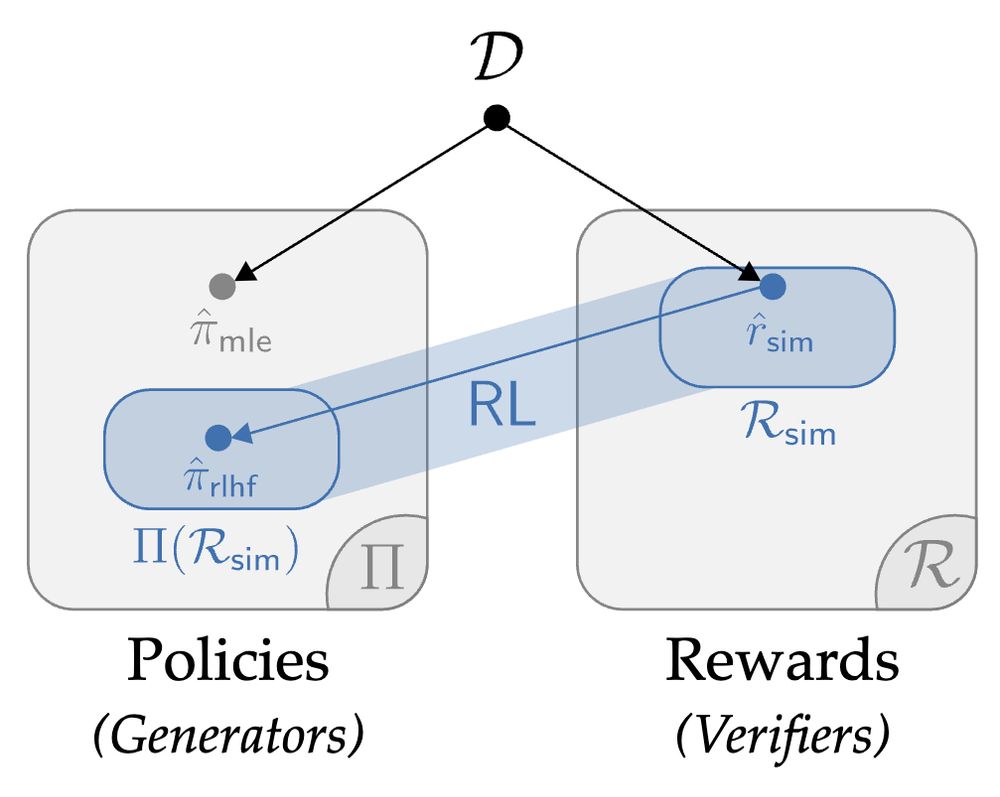
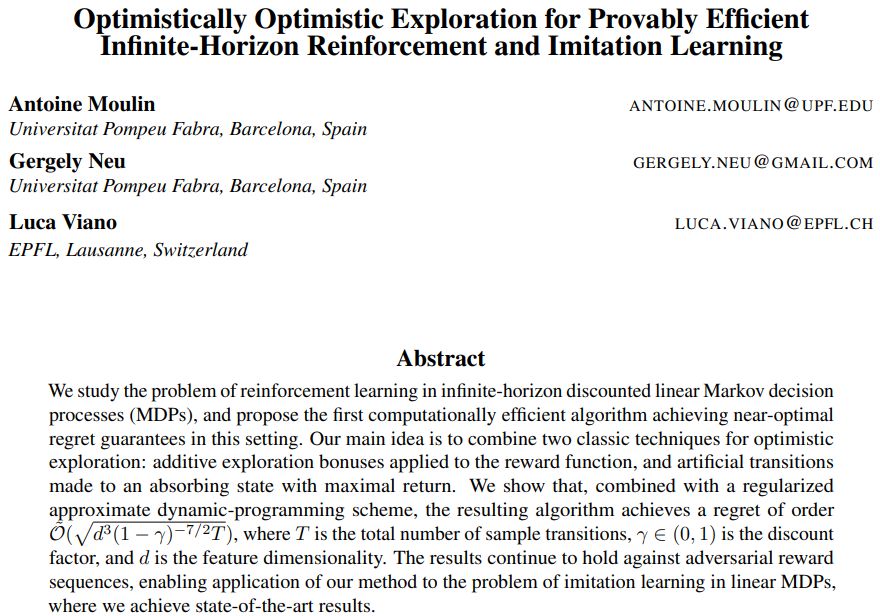
New paper led by my amazing intern Dhruv Rohatgi:
Necessary and Sufficient Oracles: Toward a Computational Taxonomy for Reinforcement Learning
arxiv.org/abs/2502.08632
1/
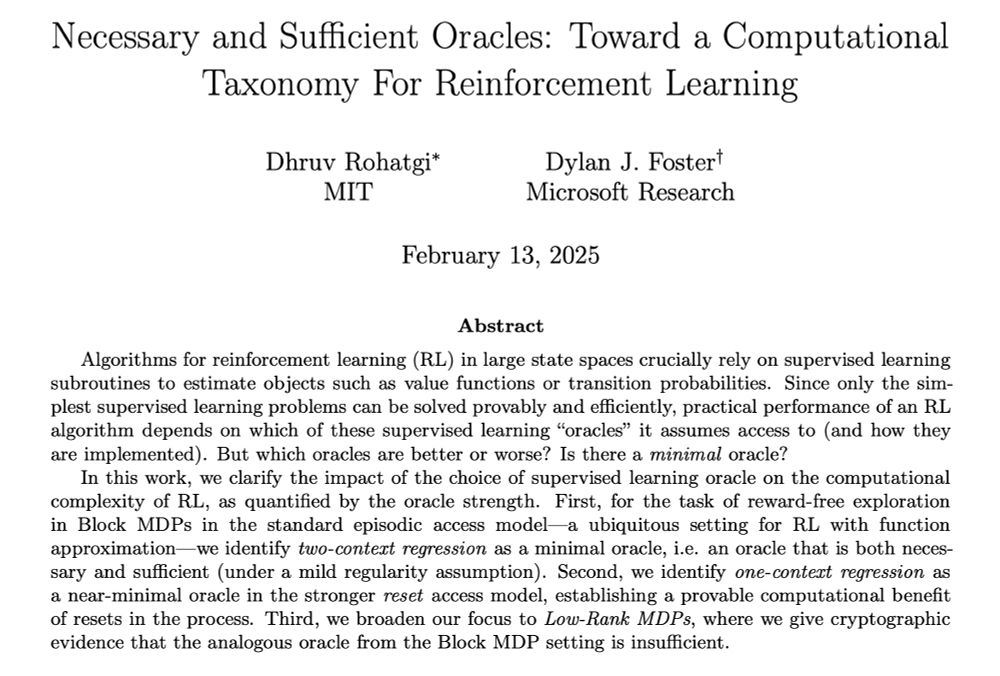
New paper led by my amazing intern Dhruv Rohatgi:
Necessary and Sufficient Oracles: Toward a Computational Taxonomy for Reinforcement Learning
arxiv.org/abs/2502.08632
1/
Across LLM families, tasks and mechanisms
This ability scales with pretraining, prefers CoT, non QA tasks and more in 🧵
alphaxiv.org/abs/2412.02674
@yus167.bsky.social @shamkakade.bsky.social
📈🤖
#NLP #ML
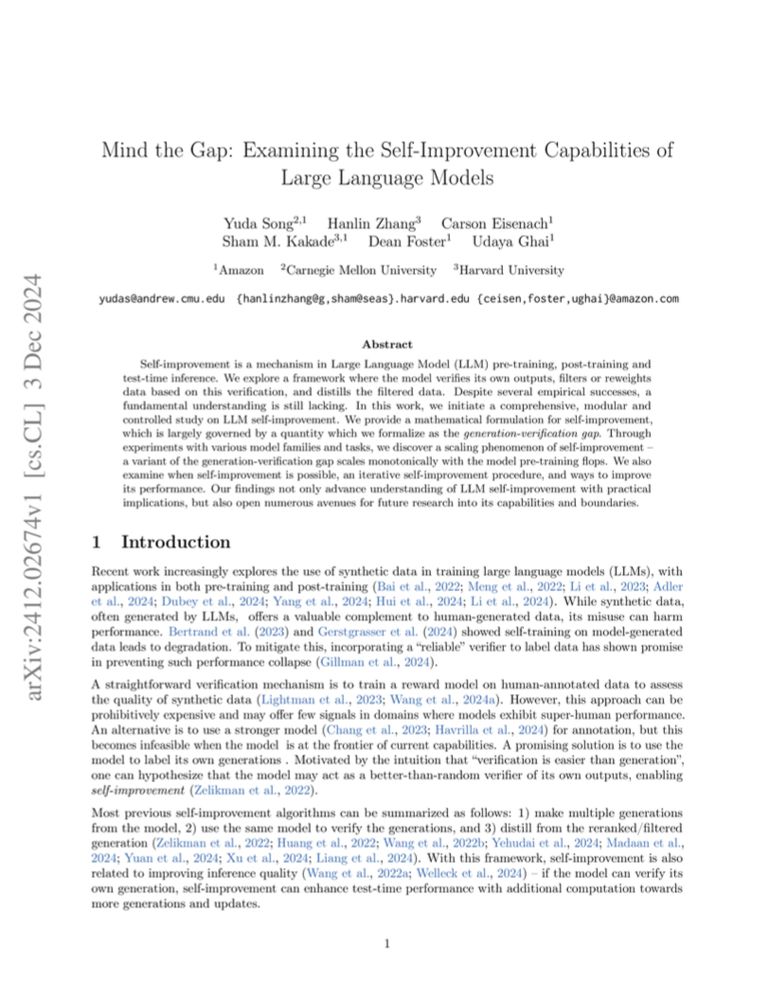
Across LLM families, tasks and mechanisms
This ability scales with pretraining, prefers CoT, non QA tasks and more in 🧵
alphaxiv.org/abs/2412.02674
@yus167.bsky.social @shamkakade.bsky.social
📈🤖
#NLP #ML
Happy to meet old and new friends and talk about all aspects of RL: data, environment structure, and reward! 😀
In Wed 11am-2pm poster session I will present HyPO-- best of both worlds of offline and online RLHF: neurips.cc/virtual/2024...
Happy to meet old and new friends and talk about all aspects of RL: data, environment structure, and reward! 😀
In Wed 11am-2pm poster session I will present HyPO-- best of both worlds of offline and online RLHF: neurips.cc/virtual/2024...

Mind the Gap: Examining the Self-Improvement Capabilities of Large Language Models
https://arxiv.org/abs/2412.02674
Mind the Gap: Examining the Self-Improvement Capabilities of Large Language Models
https://arxiv.org/abs/2412.02674
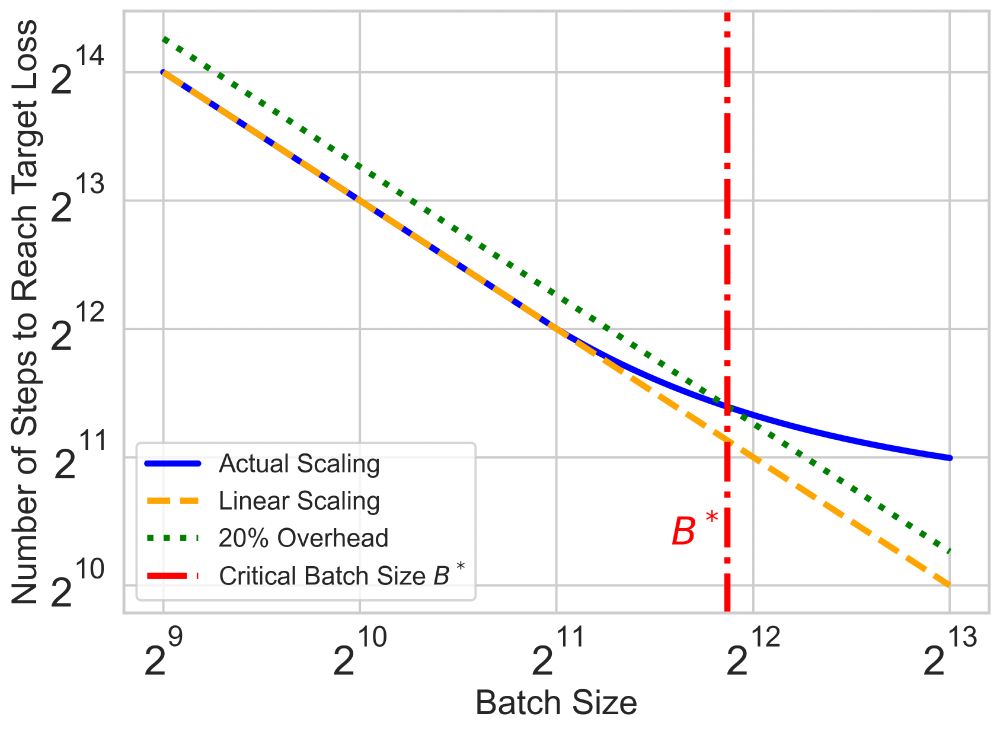
go.bsky.app/QLTVEph
#AcademicSky
go.bsky.app/QLTVEph
#AcademicSky
Logarithmic Neyman Regret for Adaptive Estimation of the Average Treatment Effect
https://arxiv.org/abs/2411.14341
Logarithmic Neyman Regret for Adaptive Estimation of the Average Treatment Effect
https://arxiv.org/abs/2411.14341
I am a final-year PhD student from CMU Robotics. I work on humanoid control, perception, and behavior in both simulation and real life, using mostly RL:
🏃🏻PHC: zhengyiluo.com/PHC
💫PULSE: zhengyiluo.com/PULSE
🔩Omnigrasp: zhengyiluo.com/Omnigrasp
🤖OmniH2O: omni.human2humanoid.com
I am a final-year PhD student from CMU Robotics. I work on humanoid control, perception, and behavior in both simulation and real life, using mostly RL:
🏃🏻PHC: zhengyiluo.com/PHC
💫PULSE: zhengyiluo.com/PULSE
🔩Omnigrasp: zhengyiluo.com/Omnigrasp
🤖OmniH2O: omni.human2humanoid.com
My research focuses on interactive AI, involving:
🤖 reinforcement learning,
🧠 foundation models, and
👩💻 human-centered AI.
Also a founding co-organizer of the MineRL competitions 🖤 Follow me for ML updates!
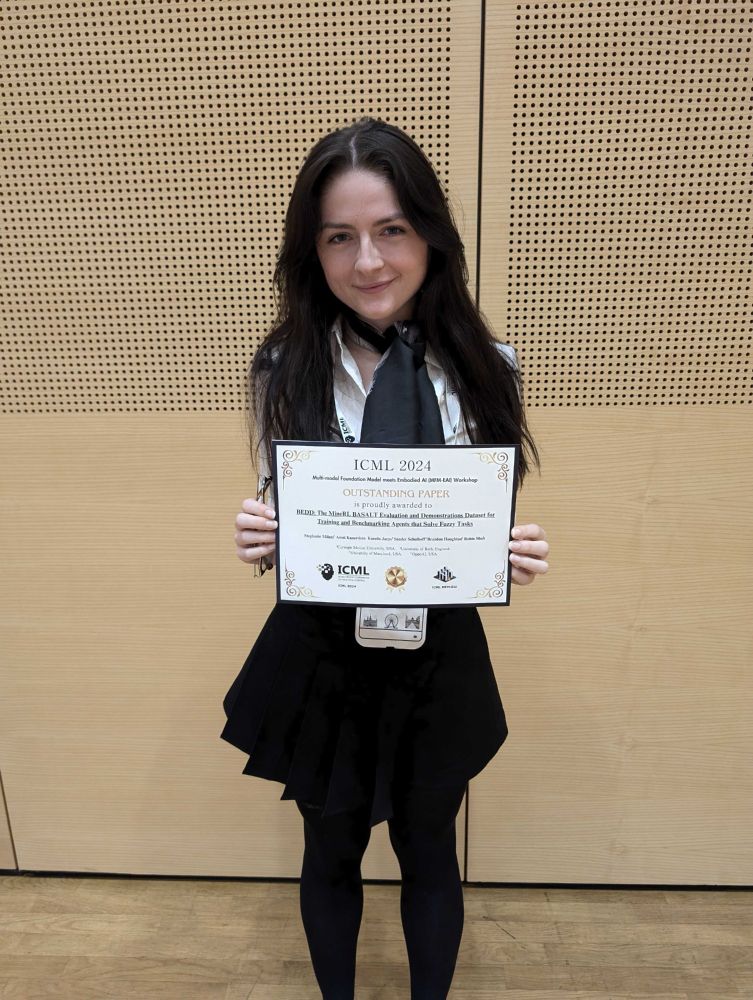
My research focuses on interactive AI, involving:
🤖 reinforcement learning,
🧠 foundation models, and
👩💻 human-centered AI.
Also a founding co-organizer of the MineRL competitions 🖤 Follow me for ML updates!

